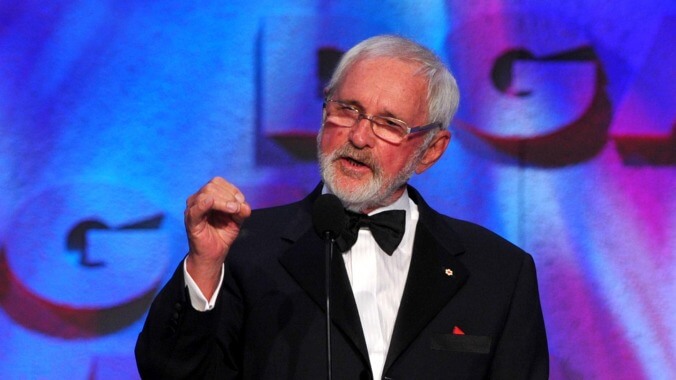R.I.P. Norman Jewison, director of Moonstruck and In The Heat Of The Night
Jewison, who got his start directing TV musicals and variety shows, had an acclaimed and varied career in Hollywood

Filmmaker Norman Jewison, who directed such varied projects as Moonstruck, Fiddler On The Roof, and In The Heat Of The Night, has died. Specific details have not been released, but The Hollywood Reporter says that Jewison died over the weekend at his home. He was 97.
Born in Toronto in 1926, Jewison evidently showed an interest in performing at a young age, studying music theory and both staging and appearing in musical shows while in school. He got an arts degree from the University Of Toronto’s Victoria College after serving in the Canadian Navy during World War II, and after working in radio for the CBC, he moved to London in 1950 for a work-study gig with the BBC.
When TV began to take off, he returned to Canada and developed a series of hit projects (mostly variety shows and musicals). In 1958, he was hired to direct musical show Your Hit Parade for CBS, with THR recounting an incident where he invited Black singer Tommy Edwards onto the show, angering the show’s sponsor. When Jewison threatened to tell the press, the sponsor backed down and Jewison got a reputation as a director with a lot of integrity.
He worked with a number of big names getting in on the new TV world, including Harry Belafonte and Judy Garland, and after some encouragement from Tony Curtis in the ‘60s, Jewison moved to L.A. to try his hand at directing movies. His breakout movie was 1965’s The Cincinnati Kid with Steve McQueen (Jewison replaced original director Sam Peckinpah), and in 1966 he got his first producing credit with the Cold War satire The Russians Are Coming, The Russians Are Coming (which he also directed).
Supposedly on the advice of Robert F. Kennedy, who THR says had noted to Jewison that America was ready for a movie about “racial injustice,” the filmmaker took on In The Heat Of The Night—which starred Sidney Poitier as a Black detective from Philadelphia who has to work with a racist police chief (Rod Steiger) to solve a murder in the South. Though Jewison lost the Oscar for Best Director, the movie won five Academy Awards that year (including Best Picture), and the scene where Poitier’s detective insists “they call me Mr. Tibbs” has become one of the most iconic moments in film history.
Jewison never did win the Best Director Oscar, despite being nominated three times in three different decades—for Fiddler On The Roof in 1971 and Moonstruck in 1987, in addition to In The Heat Of The Night in 1967. Those three movies alone show how varied Jewison’s filmography was (and that’s without even mentioning stuff like Rollerball), and how good he was at getting good performances out of his actors. He also directed The Hurricane, A Soldier’s Story, F.I.S.T., Other People’s Money, and 2003’s The Statement (his final feature film).
Hoping to create a Canadian equivalent of the American Film Institute, Jewison created the Canadian Film Centre in 1988 to educate and encourage future generations of filmmakers. He is survived by his wife, three children, and five grandchildren.